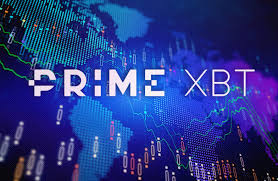
Do You Need a VPN? A Comprehensive Guide
In today’s digital age, the question of whether you need a VPN (Virtual Private Network) has surfaced repeatedly. As we engage with the internet for personal, professional, and financial activities, maintaining our privacy and security becomes increasingly vital. VPNs have gained popularity for their ability to encrypt internet traffic, mask IP addresses, and provide accessibility to restricted content. For individuals on the hunt for trading opportunities, such as those available on the do you need a vpn for primexbt PrimeXBT trading platform, understanding VPNs is crucial.
What is a VPN?
A VPN, or Virtual Private Network, is a service that creates a secure and encrypted connection between your device and the internet. By routing your internet traffic through remote servers, a VPN masks your IP address and protects your online activities from eavesdropping. Essentially, it acts as a tunnel protecting your data as it travels across the vast network of the internet.
How Does a VPN Work?
When you connect to a VPN, your device creates a secure connection to a server managed by the VPN provider. The server then connects to the internet on your behalf. Here’s a breakdown of this process:
- Encryption: VPNs use powerful encryption protocols to secure your data. This encryption ensures that even if it is intercepted, it remains unreadable to unauthorized users.
- IP Masking: By masking your original IP address, VPNs help protect your identity online. Websites and services will only see the IP address of the VPN server, not your real IP address.
- Secure Tunneling: Your internet traffic is routed through a secure tunnel, preventing snoopers and hackers from accessing your data.
Reasons Why You Might Need a VPN
There are several reasons individuals opt for VPN services, including:
1. Enhanced Online Privacy
With rising concerns over data privacy, many users turn to VPNs for added security. A VPN can help protect your browsing activities from third parties, including internet service providers (ISPs) and government agencies. Moreover, using a VPN when connected to public Wi-Fi networks significantly reduces the risk of data theft.
2. Bypassing Geo-Restrictions
Content availability often depends on geographical locations, with certain websites and services restricted to specific countries. Using a VPN allows users to appear as if they are accessing the internet from a different location, effectively bypassing these geo-restrictions. As a result, users can access an array of content, from streaming services to regional websites, that may otherwise be unavailable.
3. Secure Online Transactions
For those engaging in online trading or financial transactions, security is paramount. A VPN adds an extra layer of security, safeguarding sensitive information from potential hackers. When using platforms like PrimeXBT for trading, taking precautions with a VPN is vital to protect your investment information.

4. Avoiding Bandwidth Throttling
Some ISPs throttle internet speeds based on the type of content being accessed. This can be particularly annoying when streaming videos or playing online games. A VPN can help mitigate this issue by masking your online activities, making it more challenging for your ISP to identify and throttle bandwidth.
Choosing the Right VPN
Given the multitude of VPN services available, selecting the right one can be daunting. Here are key factors to consider when choosing a VPN:
- Encryption Standards: Ensure that the VPN uses sophisticated encryption protocols, such as OpenVPN or IKEv2.
- No-Logs Policy: Opt for a VPN provider that adheres to a strict no-logs policy, meaning they do not track or store your online activities.
- Server Location: A good VPN should offer a diverse range of server locations across different countries, allowing you to bypass geo-restrictions effectively.
- Customer Support: Reliable customer support is crucial in case you encounter any issues while using the VPN service.
Potential Downsides of Using a VPN
While VPNs boast numerous advantages, there are potential drawbacks to consider:
1. Reduced Speeds
Connecting to a VPN can sometimes result in reduced internet speeds due to the additional processing required for encryption and routing. However, premium VPNs tend to minimize this impact, providing a fast browsing experience.
2. Cost
While free VPNs exist, they can come with limitations, including data caps or slower speeds. Paid VPN services often provide more robust features and customer support. When considering a VPN for trading or sensitive transactions, investing in a reliable paid service is wise.
3. Legal Implications
In some countries, using a VPN may be restricted or illegal. It’s important to research local laws and regulations to avoid potential legal consequences.
Conclusion
In conclusion, whether you need a VPN is influenced by your online activities, privacy concerns, and the type of content you wish to access. For frequent internet users, especially those engaging in sensitive tasks like trading on platforms such as PrimeXBT, a VPN can provide significant benefits. Ultimately, weighing the pros and cons will help you determine if investing in a VPN service aligns with your needs.
